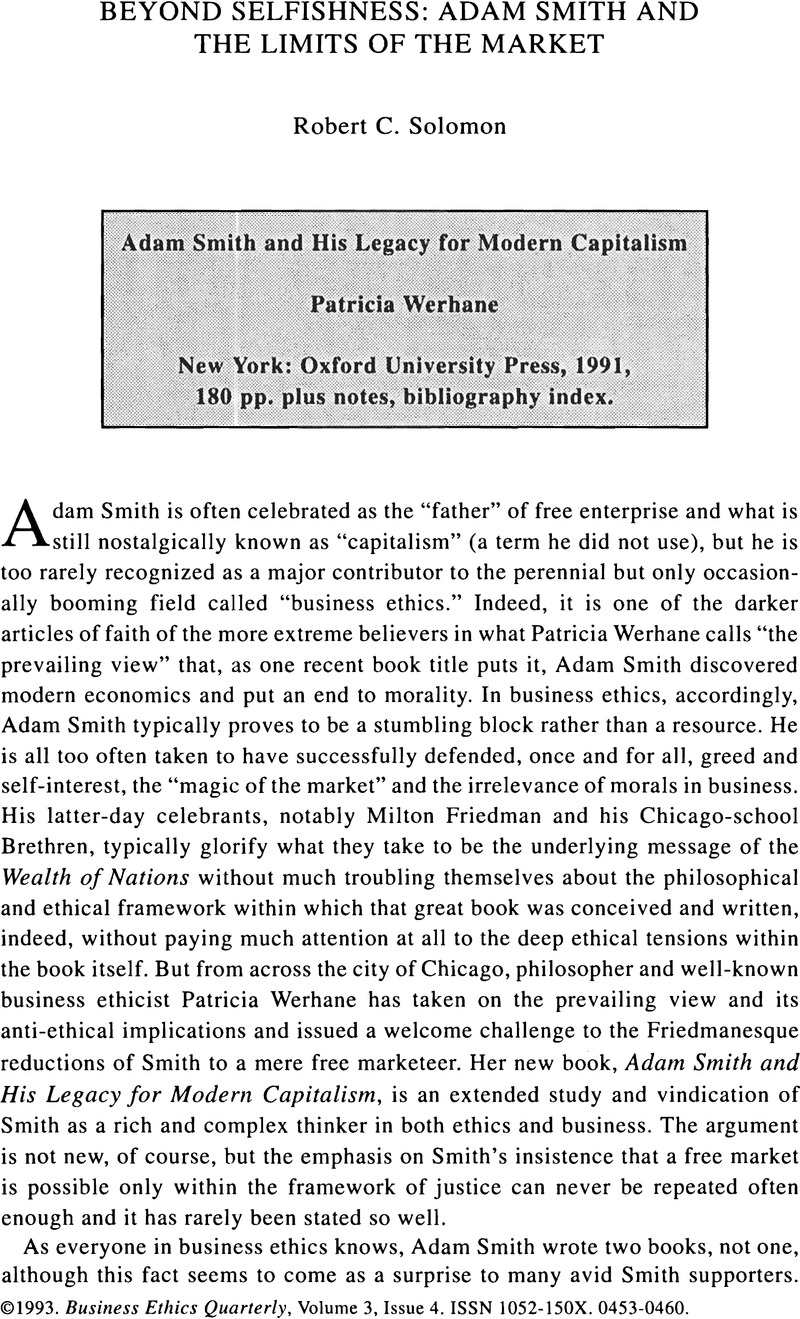Article contents
Beyond Selfishness: Adam Smith and the Limits of the Market
Review products
Published online by Cambridge University Press: 23 January 2015
Abstract

- Type
- Review Article
- Information
- Copyright
- Copyright © Society for Business Ethics 1993
References
Notes
1. From TMS 157-59, quoted in the context of this argument by Griswold in his manuscript “Adam Smith on Virtue and Selfishness,” abstract in Journal of Philosophy, Vol. LXXXVI, no. 11, November 1989.
2. Maclntyre, Whose Justice? Which Rationality? (University of Notre Dame Press, 1988). Werhane makes note that Smith is not, as he is usually conceived, a utilitarian (e.g., p. 11, 36-37). But, then, Hume is often argued to be not yet a utilitarian either, and if one takes the utilitarianism of John Stuart Mill rather than Jeremy Bentham as a model of this philosophy then I would think that there might be good reason to suggest that Smith is a utilitarian in this rather Aristotelian sense. (See my Ethics and Excellence, Ch. 9.)
- 6
- Cited by


